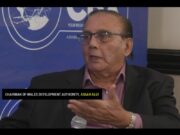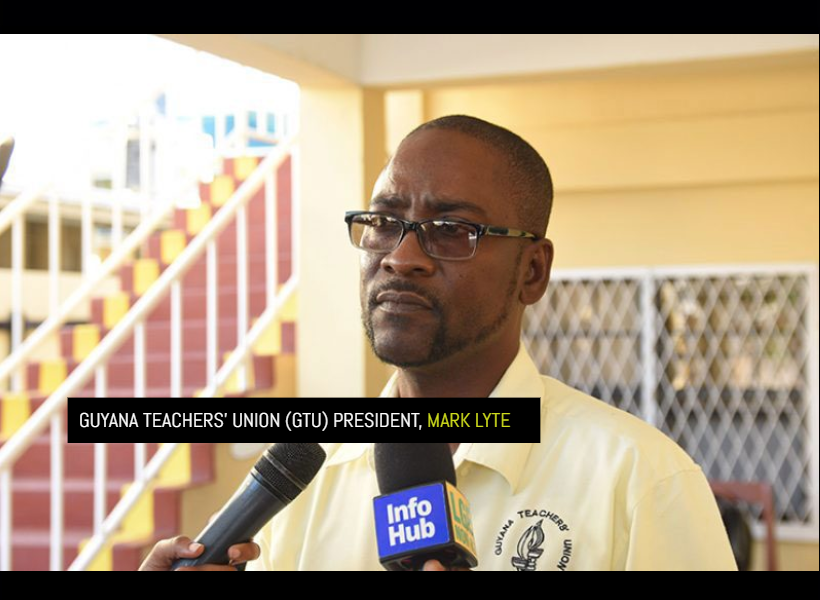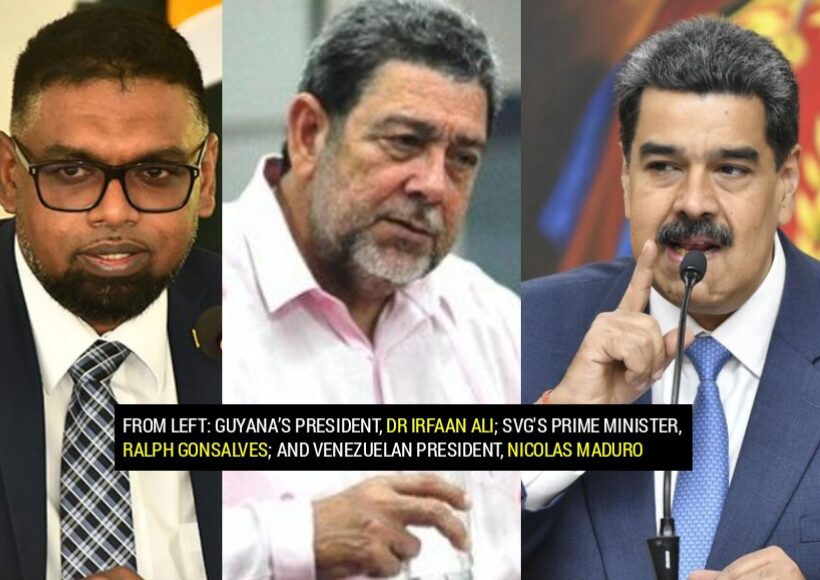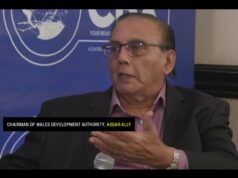In his second letter to St. Vincent and the Grenadines Prime Minister, Dr. Ralph Gonsalves regarding the upcoming meeting between Guyana and Venezuela, President Irfaan Ali has responded to inaccuracies touted by President, Nicholas Maduro in his recent acceptance letter to Gonsalves.
Maduro’s letter made claims of Guyana’s oil blocks being in a maritime area yet to be delimited and accused the government of Guyana of forging military alliances with the United States Southern Command Operations to act as an aggressor toward Venezuela.
Addressing the specific inaccuracies, President Ali strategically clarified that, “Contrary to that misleading assertion, all of the oil blocks are located well within Guyanese waters under international law, including the United Nations Convention on the Law of the Sea, which guarantees coastal States the exclusive rights to the resources in the sea and seabed within 200 nautical miles of their coasts. The oil blocks are all located adjacent to Guyana’s coast and within 200 nautical miles of it.”
He further noted that, “To underscore the misleading nature of President Maduro’s statement, it is important to note that in 2015, a significant oil discovery was made by Esso Exploration & Production Guyana Limited in the Stabroek Block approximately 120 miles offshore of Guyana.”
Ali said that since oil was discovered in 2015, production would have been executed without interference from Venezuela up until its protest of the bid round. Moreover, he said that the 14 oil blocks that were auctioned in the 2022 Licensing Round are farther east of the boundary with Venezuela and farther from the Venezuelan coast than the Stabroek Block.
He also refuted allegations of U.S. Southern Command operations interfering in disputed territory, asserting Guyana’s sovereign right to bilateral cooperation, whilst still refraining from intervention in the internal affairs of any other State.
Ali has also asserted that he will not be using this meeting which is two days away, as a forum to negotiate or discuss anything pertaining to the ongoing border controversy, maintaining that it is up to the International Court of Justice (ICJ) to give a final judgment. However, he was keen to note Guyana’s unwavering commitment to de-escalating tensions.
President Ali contextualized the dialogue within the framework outlined in the CARICOM Communique of December 8, 2023, underlining CARICOM’s unwavering support for Guyana’s pursuit of resolution through the lCJ. “In their urging of an engagement between Guyana and Venezuela at the meeting of CARICOM Heads of Government referred to above, the Heads called for ‘a de-escalation of the conflict through an appropriate dialogue between the leaders of Venezuela and Guyana to ensure peaceful co-existence, the application and respect for international law and the avoidance of the use or threats of force,” Ali noted.
“I, too, have a mandate from the National Assembly of Guyana which is unanimous in its resolve that the land boundary is not a matter for bilateral discussions and the settlement of the matter is properly in the International Court of Justice where it must remain until the Court gives its final ruling on the merits of the case which, Guyana has always said, and I repeat, will be fully respected by Guyana,” President Ali asserted.
This was in direct response to Maduro’s claim in his letter, that the Venezuelan people have given him a mandate through the recently held referendum to defend the “Guyana-Essequibo”, the very referendum that was held in defiance of the ICJ’s ruling to cease any attempts to annex Guyana’s Essequibo territory.
Detailing the historical process of dispute resolution, President Ali referenced the Geneva Agreement of 1966 and subsequent mechanisms. He highlighted Venezuela’s lack of credible support for contentions regarding the nullity of the 1899 Arbitral Award, emphasizing Guyana’s commitment to the ICJ as the definitive means of settlement.
Nevertheless, President Ali expressed readiness to engage with President Maduro on aspects contributing to improved relations and extended appreciation to CARICOM colleagues, Brazil, and CELAC countries for their efforts in facilitating dialogue, reiterating Guyana’s commitment to regional peace and security.











